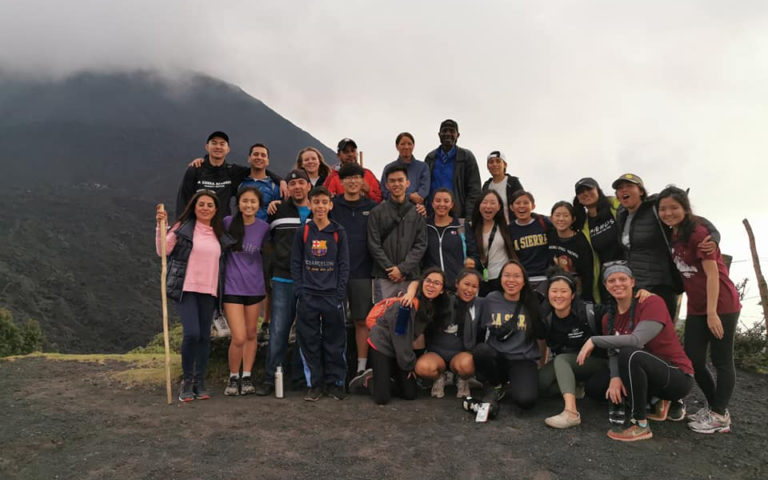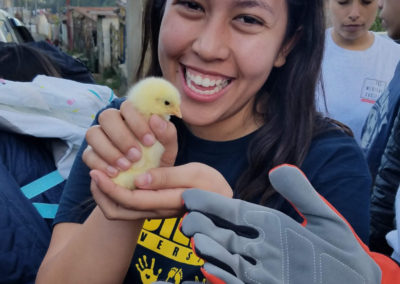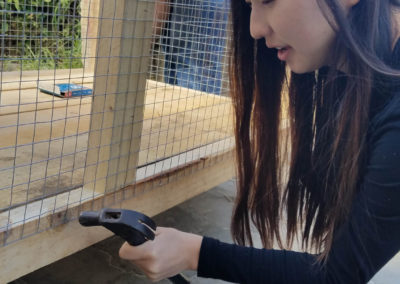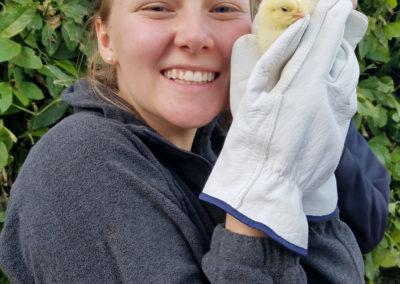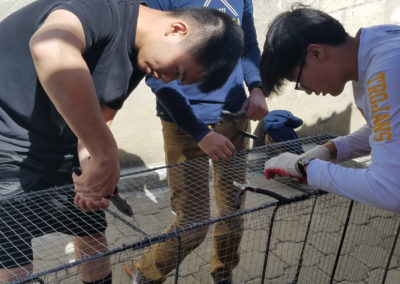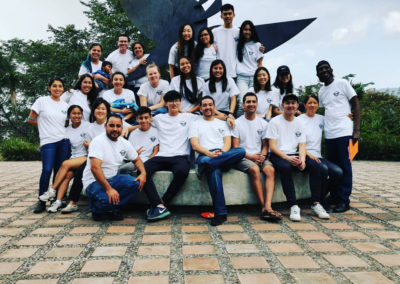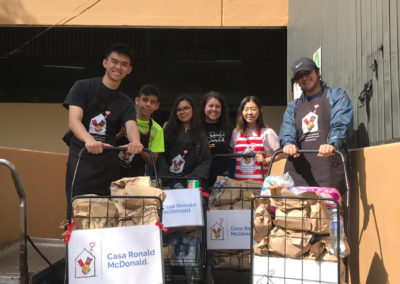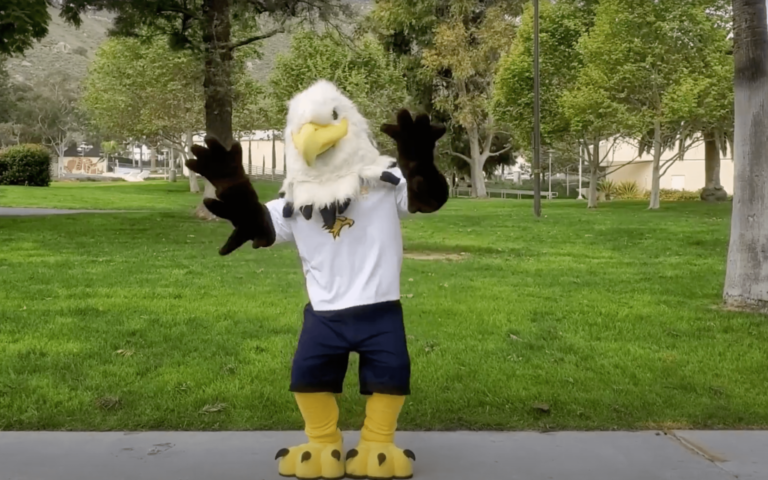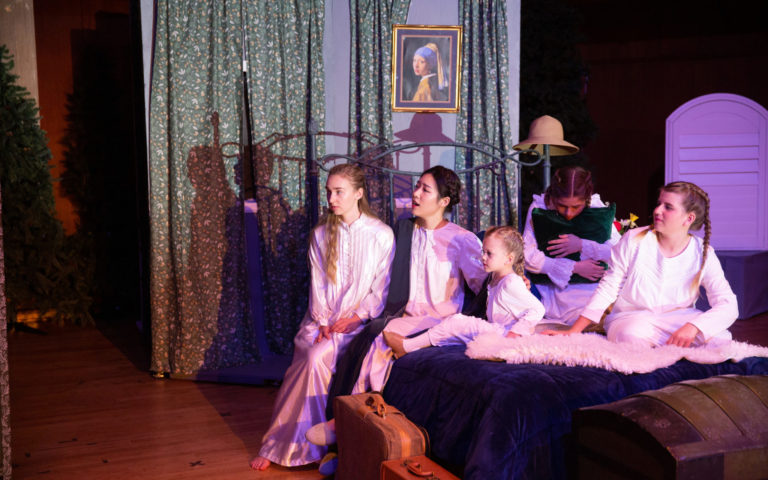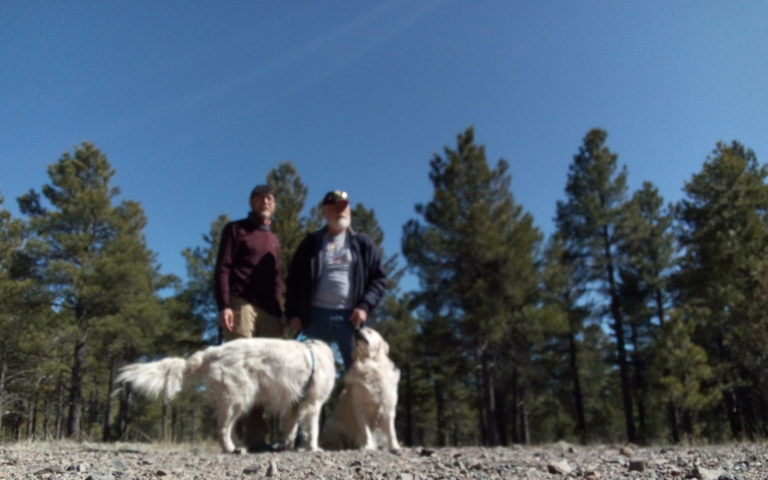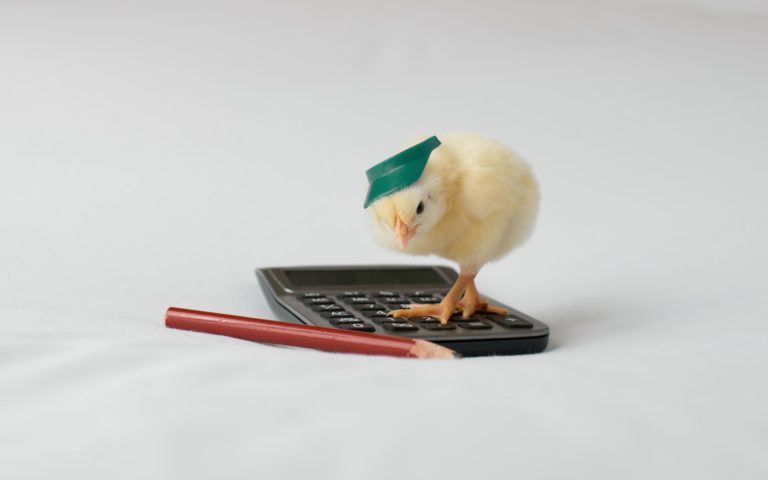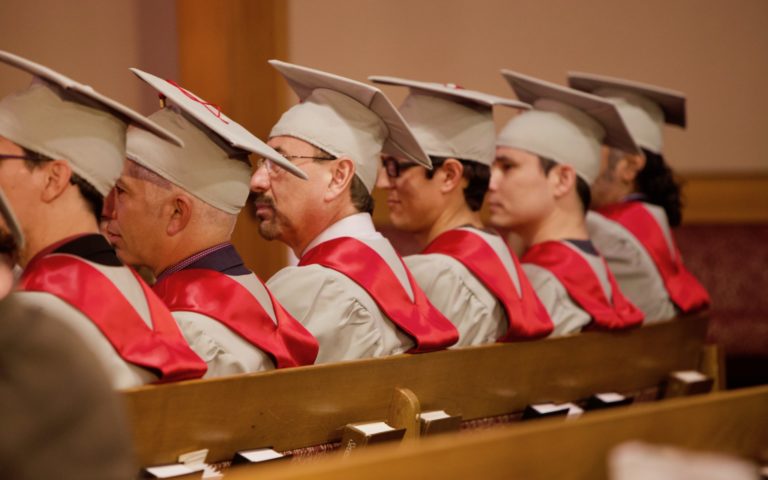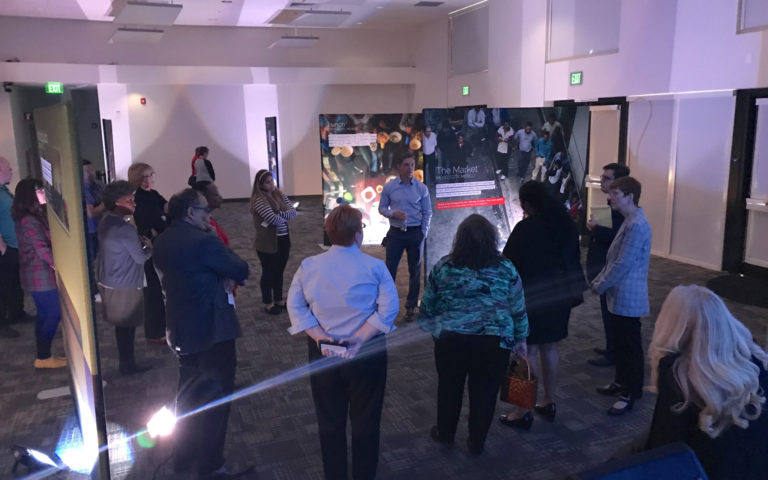No sooner had the ink been dry on their final exams than a group of 18 students, two faculty members, and a faculty spouse departed from Los Angeles International Airport bound for a mission trip to Guatemala. This was the sixteenth straight year the university’s Pre-Med Club made the journey during the holiday break, returning home just before Christmas.
The students had treasures stashed in their checked baggage, including 540 toys—donated by Iris Landa—and 59 pairs of shoes, all to be given to children in the Central American nation. “They are thankful, and we get blessed in return,” said Jaymie Gacula, a senior biomedical science major. “That was my mindset the entire trip.”
The agenda included some regular activities, since “we have a relationship with the people and they expect us to come every year,” explained biology professor Eugene Joseph, who co-led the trip with fellow biology professor Arturo Diaz. And it involved students in unplanned but thought-provoking experiences, such as a praying with two Guatemalan families in their homes. One of the families had recently lost its young mother. “The whole experience was really eye-opening,” said senior biomedical science major Samuela Ticonuwu of her first mission trip. It impressed her “not to take things for granted.”
One of the more unusual activities involved helping a pastor/veterinarian on his visit to an impoverished community. “There are no jobs,” explained Dr. Joseph, “so each family has a small animal that they raise. When it is grown, they sell it at the market to get enough money to last them until their next small animal matures.” Keeping the animals in good condition is essential. “The pastor/veterinarian makes sure the animals are healthy so the family survives,” says Dr. Joseph.
Part of that work involves administering vaccinations, and the Pre-Med Club students helped out. “I cried the first time I vaccinated a cow,” recalls the veterinarian. “You can do it!” her teammates encouraged. “The cow was perfectly fine,” she says, adding that now she’s more willing to try things outside her comfort zone.
The students painted houses, and some residents asked them to write “La Sierra University” in a corner so they could remember who did the work. And, as they do each year, they visited a children’s AIDS hospice. Years ago, some of the children fell in love with La Sierra biology professor Natasha Dean, who had participated in the Guatemalan trip with the club. “Every year she gives me gifts for them,” says Dr. Joseph. “They make cards and send them back to her. They still communicate 12 years later.”
While classroom time is valuable, there’s nothing quite like the experience of serving and helping people as happens each year in Guatemala. “It’s made an impact on my life,” says Nathan Perez, a senior biohealth science major. “I want to continue doing this for the rest of my life and continue helping people in my career as a doctor.”
“Dr. Joseph’s long-term goal for this trip is to have former participants eventually return to Guatemala, but as medical professionals,” says senior neuroscience major Taryn Batin, who has been part of the mission trip for the past three years. “The community has an extreme need for medical services that our long-graduated missionaries could potentially provide.”
Taryn recently received her acceptance to the Loma Linda University School of Medicine. Perhaps someday she will return again to Guatemala, this time with a new set of skills to contribute.
Q&A with Taryn Batin, senior, neuroscience major; three-time missionary to Guatemala
- Q:
What were your individual responsibilities with the group?
- A:
I delegated tasks, communicated with our supervisors and Guatemalan hosts, and assisted our activities director Jaymie Gacula in preparing activities and supplies for each day. I also organized our missionary lifestyle, which means I made shopping lists, cooking schedules, cleaning schedules, and things like that. And most of all, I had to improvise, improvise, improvise.
- Q:
What impressed you most during this mission experience?
- A:
I was actually impressed most with my team of missionaries. They were amazing at taking the initiative in leading out activities and getting tasks done. I am extremely appreciative of all the lasting friendships I gained from the mission trip.
None of what I did there helped the people out of poverty, but while trying to make their situations better, I was blessed by the friendships that emerged from it. Seeing the gratitude of the people, despite their poor living conditions, allowed my faith to grow on a humanitarian level.
Being Jesus’ hands and feet might require stepping outside of my comfort zone, but seemingly little acts of service can mean everything to the people there.

